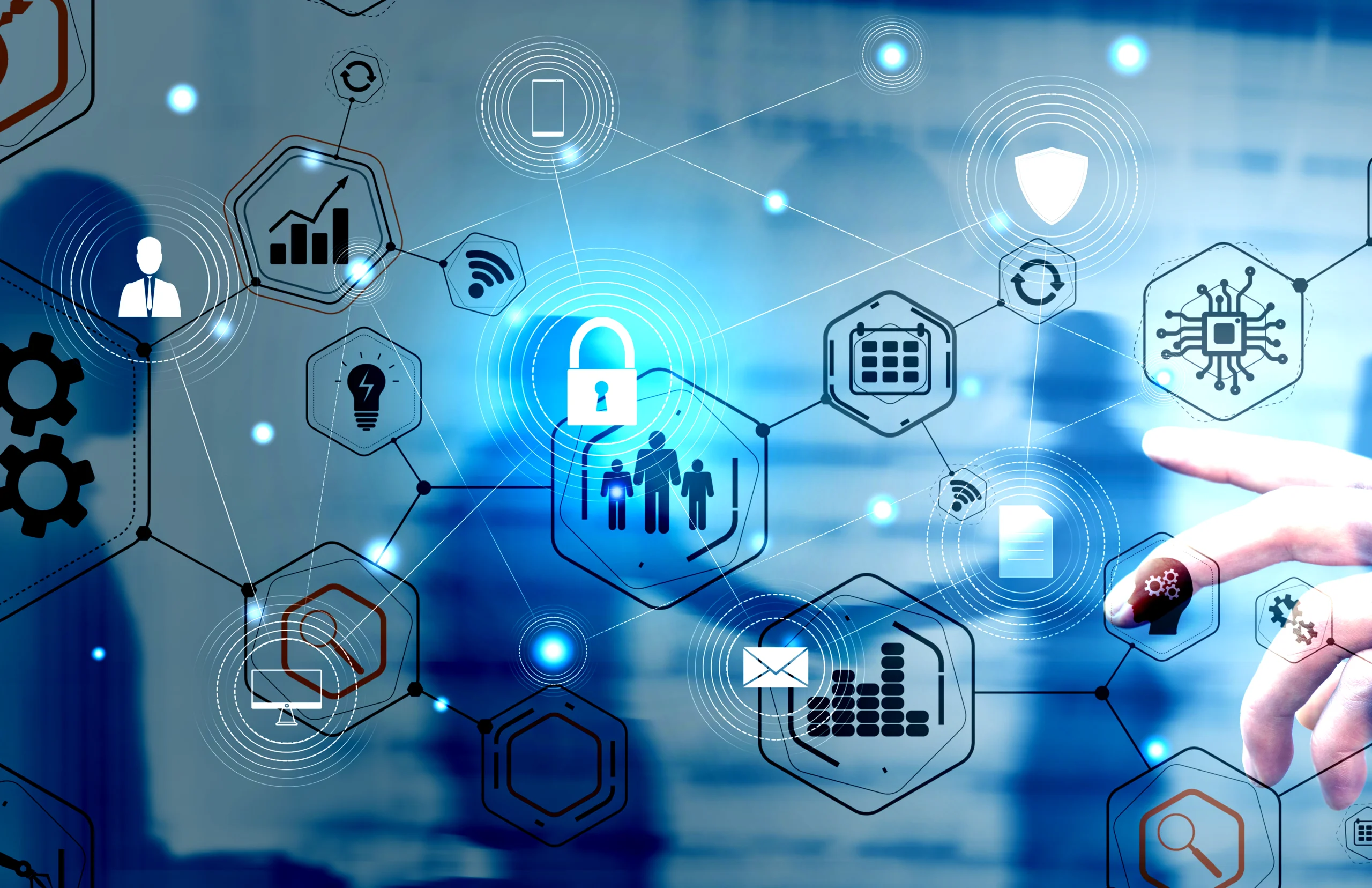Blockchain: help or hindrance?
The adoption of blockchain technology has gained a lot of traction over the last few years. However, blockchain’s potential to disrupt the traditional process of recording transactions in a transparent, traceable, resilient, and secure manner has been met with skepticism.
While critics have long argued that blockchain technology has the potential to disrupt businesses in the verticals of manufacturing, energy, public services, healthcare, and most importantly, financial services, they have all agreed that blockchain helps enterprises address cybersecurity challenges of maintaining data integrity and confidentiality.
Intricacies of cybersecurity in blockchain’s context
Data security is still a primary concern for most organizations considering using blockchain technology. From an organisational standpoint, “confidentiality of data” means ensuring that no unauthorized individual or entity has access to sensitive information that could harm the business.
When blockchains are implemented within an organization, they are referred to as “Private Blockchains”. Only authorized personnel have access to the ledgers, which implies that they are protected by the organization’s internal security layers such as firewalls and Virtual Private Networks (VPN). However, a well-laid cybersecurity program with clearly defined roles, structured processes, accountability measures, and most importantly a behavioral change across the business should be implemented.
RELATED CONTENT
Data Confidentiality
As mentioned in the preceding part of this article, a Private Blockchain is akin to an intranet, where access is limited to a closed group of people. However, with the wider adoption of blockchain technology, organizations will need to figure out how to protect data confidentiality through authorization, authentication, and encryption.
But what is data confidentiality? In the most simplistic terms, “data confidentiality” means that sensitive information is not accessible or disclosed to unauthorized individuals, entities, or even processes.
Let us assume that there is a malware attack on an organization’s data repository that is digitally stored in the blockchain in the form of ledgers. Would that make the critical information vulnerable to cyber attackers?
Implementing measures such as end-to-end encryption of each data block ensures that the information stored in digital ledgers is accessed only by the authorized people who can decrypt the data using their private key. The cryptographic algorithms generate private keys using an integer factorization technique that is difficult to break into with the current computing power. Hence, it is imperative that the organizations which use blockchain technology encrypt the stored data to reduce the risk of a data breach.
Guaranteeing Data Integrity & Consistency
When you compare blockchain technology with a regular database, organizations rest assured about data integrity and consistency. It becomes increasingly difficult for cyber attackers to crack the blockchain and compromise the data as it is stored in a tamper-proof ledger secured with a combination of sequential hashing.
“Hash” is a mathematical function that converts an arbitrary length of input into a fixed-length encrypted output, which means that irrespective of the size of the input file, if the function is applied on the same set of “data”, its hash will be identical.
This allows one to verify the veracity and consistency of the data, which would otherwise be challenging if done with the data stored in a regular database.
From the perspective of cybersecurity, blockchain brings itself a distinguishing capability of “Auditability”. Every time a new transaction is created in a blockchain, it must be time-stamped and digitally signed by the person who initiated the transaction. This means that the organizations can trace the “authorship” as well as the “time of origination” with a reasonable accuracy level. This “non-repudiation” security feature assures the organizations that the data stored in the blockchain is not tampered with and is consistent.
Let’s assess Technological Risks
While the benefits of blockchain technology far outweigh the hazards, it is prudent to carefully assess the risks, specifically “Technological Risks” before going ahead with the decision-making process.
Improper encryption processes can have a detrimental impact on the company’s overall operations exposing them to the “man-in-the-middle” attacks. While cryptographic algorithms do provide for adequate data protection, several other factors such as using “Weak encryption/decryption keys”, managerial errors like issuing incorrect digital signatures and certificates, may be used by the cyber attackers to gain unauthorized access to the ledger.
Other significant technical risks include allowing “Third-party API” integration into your blockchain that could lead to trust issues and leakage of sensitive data, on rare occasions.
Final Thoughts
Blockchain technology is gaining traction not just among businesses, but governments who are looking to enhance their data privacy and security that is crucial to protecting their sovereignty. The disruptions caused by the COVID-19 pandemic have renewed the need for robust, resilient, and secure solutions that restrict unauthorized use of confidential data and information.
Enterprises are increasingly seeing blockchain as a panacea to solving cyber-attacks related threats. The answer to combating the menace of cyber-attacks in this unpredictable world is to leverage the power of blockchain to create solutions that ensure data confidentiality and privacy while also achieving the larger goal of good governance.
We, at eInfochips, understand the importance of the three aspects of data integrity, privacy, and confidentiality. Hence, we tackle the ever-evolving cybersecurity threats by adopting a secure, vigilant, and resilient framework that enables the organizations to ensure that only the authorized users and entities access the business-critical information. In our pursuit to develop digital capabilities, eInfochips has built a strong focus on implementing blockchain technology across the spectrum of business verticals. Thereby, creating a robust mechanism to avert new-age ingenious cybersecurity attacks. Our expertise in blockchain technology can be leveraged to build customized cybersecurity solutions that seamlessly integrate with the existing technical infrastructure, ensuring no disruption to the ongoing business processes. To know more about our blockchain and cybersecurity services, please contact us today.













